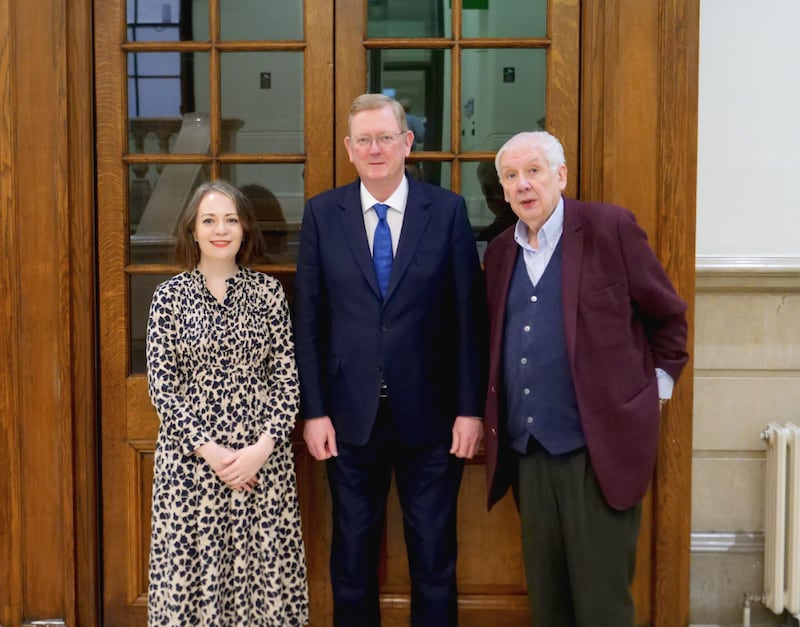The launch of a British government-sanctioned project to create a “public history” of the Troubles has been criticised ahead of legacy legislation halting inquests and civil cases relating to the conflict.
The project will see historians granted access to government archives to carry out an “independent and authoritative examination” and an overseeing panel is co-chaired by Belfast-born peer and historian Lord Bew.
Running alongside the British government’s controversial legacy act - which is set to bring an end to Troubles inquests and civil cases that have not reached the point of verdict by May 1 - is a government commitment to the commissioning of a “public history” of the conflict, to be published.
Critics have questioned the choice of historians joining the panel overseeing the project, highlighting a lack of currently working academics based in the north.
Professor Anna Bryson of Queen’s University’s School of Law told the Irish News that part of the legacy legislation was about shaping the “narrative of the past”.

“Explaining the rationale for Part 4 of the Legacy Act, which deals with oral history and memorialisation, and the ‘official history’ of the Troubles, former Northern Ireland Secretary Brandon Lewis said that it was designed to ‘halt the rewriting of history’,” she said.
“With my colleague, Professor Louise Mallinder, I have recently reviewed academic and legal understandings of ‘reconciliation’. One thing that is clear from the international case law is that reconciliation requires all narratives to be heard and respected – including those that are critical of the state.
“The timing of this launch of an ‘official history’ is particularly difficult for victims and survivors who will within days see the shutters come down on their hopes of accessing truth and justice through independent investigations with legal teeth.”
She added: “I look forward to full and transparent disclosure of the appointment and consultation process, including reference to all those who declined to engage.”
The launch of the project with the backing of Northern Ireland Office (NIO) minister Lord Caine, who is a staunch supporter of the legacy act, prompted victims group Relatives for Justice to claim in a social media post any ‘public history’ would be the “gaslighting of our population”.

Meanwhile, Daniel Holder, director of Belfast-based human rights group Committee on the Administration of Justice (CAJ), told the Irish News: “When CAJ and academic colleagues met with Lord Caine we asked what the purpose of the official history was. His response was that the British government was entitled to put forward its version of history.
He said: “The belated changing the of name ‘official history’ – that ministers have used throughout - to ‘independent public history’ will fool nobody. Its notable that virtually no NI-based academic has agreed to be part of this.”
Responding to the criticism, a British government spokesperson said the project would provide independent historians being granted “privileged access to closed files beyond the normal provisions of the Public Records Act”.
“The project will be steered by an independent and diverse panel of experts from across the United Kingdom and the Republic of Ireland, ensuring the project is conducted rigorously, objectively and to the highest academic standards,” they said.
“Past examples of official histories have shown that historians have had access to records that would otherwise have been unavailable, and have been free to write about what they found independently, including where such findings have been critical of previous government actions.”








